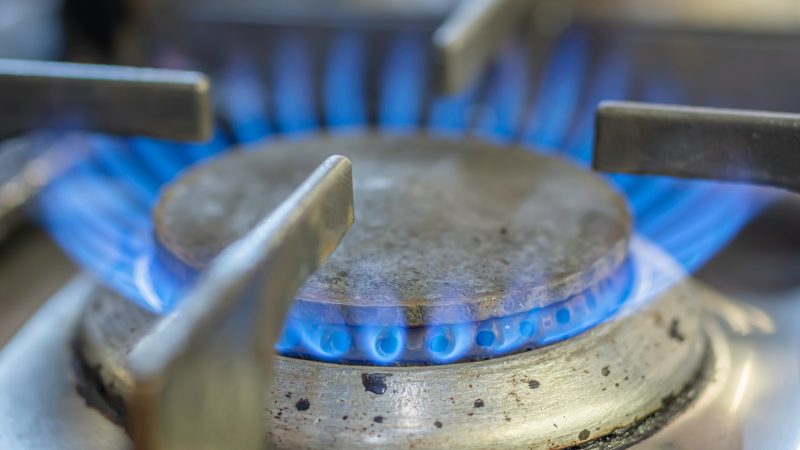
It has been a crisis long in the making, and it is about as widespread as possible as anyone could imagine. I am talking about the cost of living. Of course, we are in the midst of another national crisis: Covid and the Omicron variant, which have left us drained. As households and business enter the new year, however, and try to imagine life as we emerge from the pandemic, we also face huge concerns over rising energy prices.
Bills have soared after a rise of around 500% in the cost of gas in wholesale markets over fewer than 12 months. This unprecedented rise has hit households, small- and medium-sized enterprises (SMEs) like mine and large corporations. At the same time, a staggering 26 energy firms stopped trading last year.
The problem has been fuelled by years of weak regulation and even weaker government. And the cap on energy bills is expected to rise again in April, so ordinary folk like you and I are left to pay the price.
I co-own three restaurants in central London. Before the last round of price hikes, we would pay between £2,500 and £3,000 a month for energy at each location. The last bill we had was for around £5,600.
At the same time, turnover has fallen by 85% to 90% of pre-lockdown levels. Before the pandemic we might serve 600 people a day; these days it’s closer to 60. But our costs are still climbing, as I told The Guardian last week. We are worried.
Just as business owners and managers are concerned about energy costs, so are most households. Bills for gas and electric eat up an increasing share of each household’s disposable income. Along with the £20-a-week cut to Universal Credit, the soaring energy costs have contributed to a cost of living crisis.
The average annual gas bill could rise to £2,000, the respected Resolution Foundation think tank has warned. This has created the risk of a “cost of living catastrophe”, it said. “The cap on energy bills is expected to rise by around £500 a year. Coupled with a further £100 rise to recoup the costs associated with energy firm failures, this could mean a typical energy bill rising by around £600 a year.”
Naturally, fuel costs are back at the top of television news bulletins. Energy prices are certain to rise for small businesses – the only question is by how much, with one estimate suggesting they will nearly double. This comes at the worst possible time, with the cost of running an SME rising relentlessly. For hospitality businesses, that includes the cost of food and drinks, as well other costs directly linked to running the business.
Labour’s frontbench is right to call for the 5% VAT rate on energy bills to be cut immediately (a policy demanded in 2016 by one Boris Johnson). Over the last week, Angela Rayner, the deputy leader, and Rachel Reeves, the Shadow Chancellor, have laid out a clear plan how Labour would handle this crisis:
- A one-off windfall tax on North sea oil and gas producers to help limit the expected rise in household energy bills.
- The scrapping of VAT on household energy bills for 12 months.
- Increased spending on the warm homes discount for households under the most financial pressure.
These are the right measures and it is no wonder Angela hammered Boris at Prime Minister’s Questions last week.
As an entrepreneur, I cannot see why the government cannot deliver the tax cut on energy bills right now. If ministers continue to resist this common-sense move, however, energy companies could offer forbearance. Just as commercial landlords allowed Covid-affected businesses to defer rent or pay what they could afford during the first lockdown, so the power giants could allow SMEs to pay a share of their bill now with the remainder to follow over the next two years.
These are, of course, short- and mid-term measures. Over the long term, we need to deal with the decade of Tory complacency on energy supply and end our national dependence on importing gas to produce energy. We must invest more in renewables, and Labour has pledged to spend billions more on green investment. As part of that, we must create greater capacity to store gas. Incredibly, it was only five years ago that the government sold off our gas storage capacity.
With a bit of decent planning in Westminster and Whitehall, the strategy should be simple: buy gas wholesale when prices are subdued, and retain it for use when the unit cost rises internationally. This is what good government looks like. Crises come and – it is hoped – they will be overcome. But the Tories have been too slow and too slack to prepare. Now Britain is paying the price.




More from LabourList
Economic stability for an uncertain world: Spring Statement 2026
‘Biggest investment programme in our history’: Welsh Labour commit to NHS revamp if successful in Senedd elections
James Frith and Sharon Hodgson promoted as government ministers